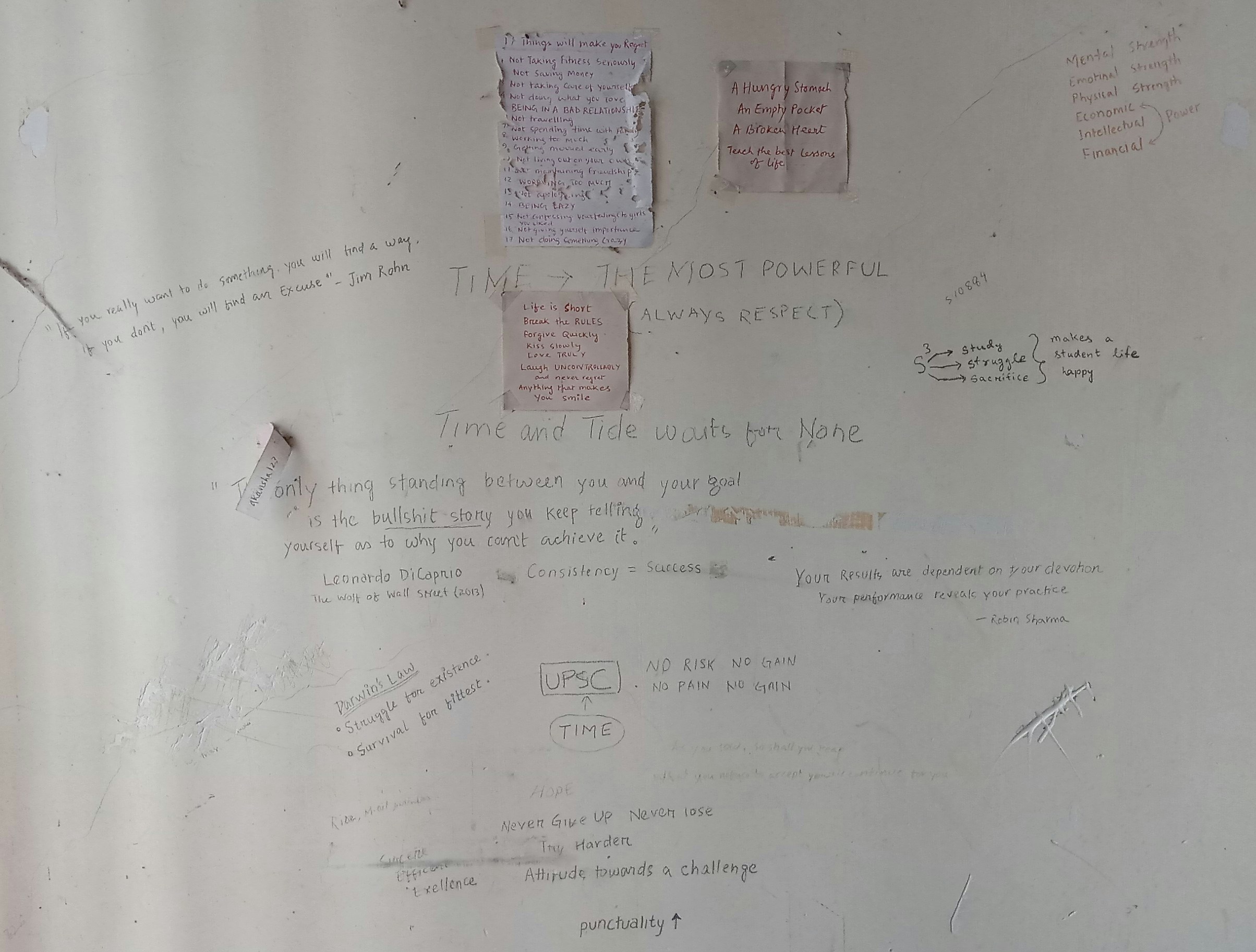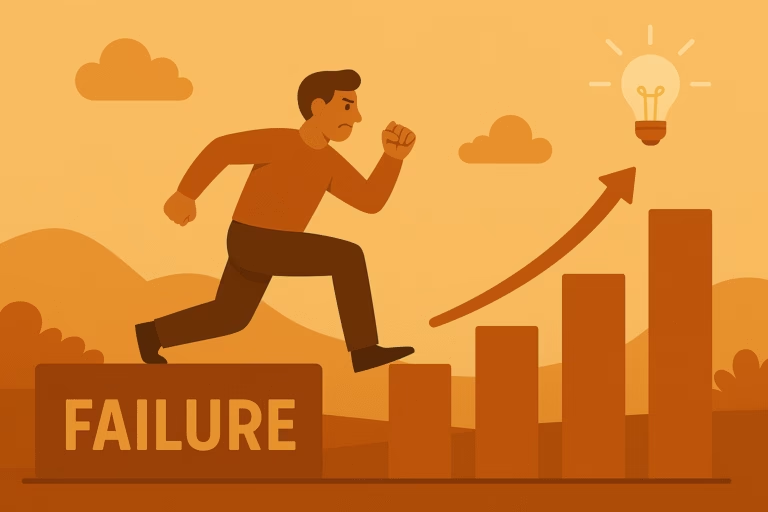"Better Every Day For You" -NeoKalon
Overcoming Failure: Why Every Setback is Your Secret Weapon

Understanding Failure: The First Step to Overcoming It
Failure is often perceived as a definitive halt to one’s ambitions, yet this perspective overlooks its foundational role in growth and development. In many cases, acknowledging failure as part of the journey is crucial when navigating toward success. The psychological impact of failure can evoke feelings of disappointment, frustration, and even self-doubt. However, it is important to understand that these emotions are a normal response to setbacks and can be reframed as valuable learning experiences that contribute to personal and professional development.
Common misconceptions surrounding failure often fuel the fear of taking risks. Many individuals perceive failure as a reflection of their abilities or worth, leading to avoidance of challenges that could ultimately pave the way for achievement. This mindset traps individuals in a cycle of stagnation where opportunities for growth are missed. Embracing failure as an essential element of any effort allows one to shift this narrative from a negative outlook to one that appreciates the constructive lessons embedded within setbacks. Each misstep provides deeper insights and expectations that can inform future endeavors.
To truly leverage the benefits of failure, it is essential to analyze what went wrong and how these lessons can be applied moving forward. This process encourages a growth mindset, where challenges are viewed not as barriers, but as stepping stones to greater achievements. By understanding failure in this context, individuals can dispel the fear of setbacks and cultivate resilience. Ultimately, reframing failure as a cornerstone of success prepares one to tackle obstacles with a renewed sense of purpose and determination, transforming each setback into a secret weapon for future endeavors.
Mindset Shifts: Turning Setbacks into Stepping Stones
Adopting a growth mindset is essential for overcoming failure and transforming setbacks into opportunities for progress. This psychological framework, championed by psychologist Carol Dweck, emphasizes the belief that abilities and intelligence can be developed through dedication and hard work. Individuals with a growth mindset view challenges not as insurmountable barriers, but as opportunities to learn and grow. This perspective fosters resilience and encourages the persistence necessary to navigate adversity.
One effective strategy for cultivating a growth mindset is the practice of self-compassion. Self-compassion involves treating oneself with kindness during times of failure, understanding that setbacks are part of the human experience rather than reflections of personal inadequacy. When individuals apply self-compassion, they are less likely to dwell on negative outcomes and more prone to analyze their experiences constructively. This positive approach can significantly improve emotional resilience, enabling individuals to bounce back after facing difficulties.
Real-life examples abound, showcasing how a growth-oriented mindset can yield remarkable transformations. Consider Thomas Edison, who famously stated, “I have not failed. I’ve just found 10,000 ways that won’t work.” Edison’s relentless pursuit of success despite repeated failures led to the invention of the electric lightbulb, illustrating how setbacks can serve as stepping stones rather than dead ends. Similarly, J.K. Rowling faced numerous rejections before publishing the Harry Potter series, which eventually became a global phenomenon. Her perseverance, fueled by a growth mindset, demonstrates how setbacks can provide invaluable learning experiences that ultimately lead to success.
By embracing these mindset shifts and recognizing failures as integral components of the learning process, individuals can harness the power of setbacks to foster motivation and determination.Continuous effort and learning from experiences can turn potential failures into the building blocks of future achievements.
Practical Reflection: Learning from Losses
Experiencing failure can be disheartening, yet it serves as a valuable opportunity for learning and growth. To effectively harness the lessons learned from setbacks, individuals should adopt a practical reflection strategy that encourages honest analysis of their experiences. A useful method for this is through journaling, as it allows for an organized examination of what went wrong and why. By recording emotions and thoughts surrounding the failure, individuals can pinpoint specific aspects to address and improve upon. This reflective practice can reveal patterns or recurring issues that may have contributed to the setback.
In addition to personal reflection, soliciting feedback from trusted peers or mentors can provide new perspectives on the situation. Sometimes, an outside viewpoint can uncover blind spots that one may overlook during self-evaluation. Engaging in open conversations about failures can also foster a supportive environment, making it easier to share experiences and develop resilience collectively. Emphasizing constructive criticism over personal judgment helps to reframe failures as stepping stones toward improvement instead of sources of shame.
Moreover, setting future goals based on these reflections can transform past disappointments into powerful motivators. By establishing clear, actionable objectives, individuals can create a roadmap for progress and success. Breaking down larger goals into smaller, manageable tasks can facilitate incremental achievements, building confidence over time. This goal-oriented mindset not only encourages advancement but also reinforces the understanding that setbacks are not the end but rather an integral part of the journey toward success.
Ultimately, employing these strategies allows individuals to transform negative experiences into positive growth opportunities. By embracing failure with a constructive outlook and a commitment to self-improvement, one can emerge stronger and more resilient, ready to navigate future challenges effectively.
Building Grit: Embracing Discomfort and Staying the Course
Building grit is a vital attribute that enables individuals to persevere through the inevitable challenges that arise on the path to success. Embracing discomfort is not merely about enduring hardship; it involves actively confronting the obstacles that stand between oneself and one’s goals. In this context, it is essential to differentiate between temporary setbacks and permanent failures. Temporary setbacks are often merely stepping stones, situations that can be learned from and navigated with resilience, while permanent failures denote a state of defeat that stifles progress and learning.
Resilience is frequently forged in the crucible of tough times. It is in these moments of discomfort that individuals have the opportunity to cultivate their character and fortitude. For instance, renowned figures like Thomas Edison and J.K. Rowling faced numerous rejections and failures before ultimately achieving success. Their experiences exemplify how grit and a commitment to one’s vision can transform setbacks into invaluable lessons, encouraging perseverance in the face of adversity.
To foster a gritty mindset, one can adopt several actionable strategies. First, it is crucial to redefine one’s relationship with failure. Instead of viewing failure as a definitive endpoint, consider it a necessary component of the journey towards achievement. This perspective shift empowers individuals to approach challenges with determination rather than fear. Secondly, setting specific, incremental goals can help maintain focus and motivation during challenging periods. By breaking larger objectives into manageable parts, individuals can celebrate small victories, reinforcing their resilience.
Finally, seeking support from a community can be invaluable. Surrounding oneself with encouraging and like-minded individuals fosters an environment of positivity and accountability. These connections can provide motivation and strategies to navigate discomfort, reinforcing the belief that every setback is not a permanent failure but an opportunity for growth. Building grit, therefore, hinges on embracing the process and committing to pushing through even in the toughest of times.
Recommended Reads & Related Resources
To help you go even deeper on your journey to living without limitations, here are some powerful books and articles we recommend. These resources can expand your mindset, build discipline, and inspire lasting change.
📚 Books to Read:
- Atomic Habits by James Clear – A practical guide on building systems and making small changes that lead to big results.
- The Subtle Art of Not Giving a F*ck by Mark Manson – A brutally honest book on letting go of unimportant things and living life on your own terms.
- Can’t Hurt Me by David Goggins – A powerful story of resilience, mental toughness, and pushing past limits.
- Ego Is the Enemy by Ryan Holiday – Learn how to conquer your inner resistance and lead with humility and strength.
Explore More & Stay Connected
If you found this post helpful or inspiring, make sure to check out our other articles on personal growth, mindset, and building a life of purpose. Every blog is crafted to help you break free from limitations and become the person you’re meant to be.
👉 Browse more blog posts here
👉 Return to the NeoKalon homepage
We update regularly, so don’t miss out on fresh content designed to challenge your mindset and fuel your journey. Your transformation starts here — one step, one thought, one habit at a time.
And of course don’t forget to leave a comment of your opinion and thoughts about this post. And thanks again for reading. Until next time.



